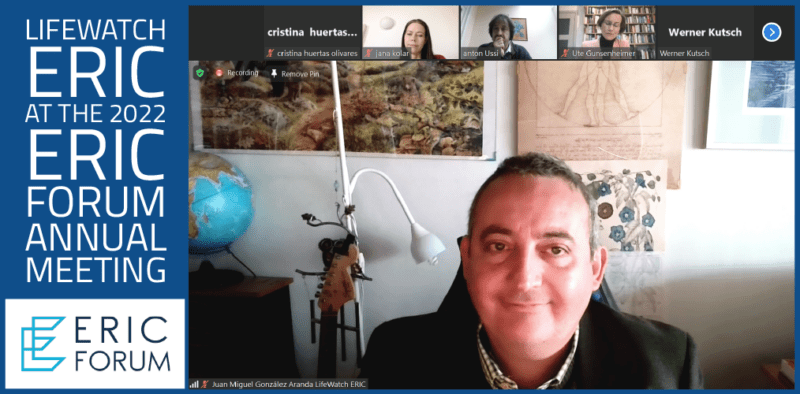Today, 26 January 2022, LifeWatch ERIC CTO Dr Juan Miguel González-Aranda participated in the ERIC Forum Annual Meeting. During the event, Dr González-Aranda presented the “Technical and Innovation Report on the integration of ERICs into pan-European infrastructures – The example of EOSC” on behalf of his co-authors, Dr Cristina Huertas Olivares and Dr Christos Arvanitidis of LifeWatch ERIC.
The report was produced in the context of the ERIC FORUM H2020 Project, forming part of Work Package 6: “The Role of ERICs in European science policy and research strategy”. It presents a review on the integration of ERIC development into pan-European infrastructures, particularly regarding the new EOSC (European Open Science Cloud).
In the first chapter, which describes Research Infrastructures (RI) and RI clusters, the reader is introduced to the rationale for their cooperation and collaboration in using EOSC resources: it achieves a degree of integration of their basic assets (e.g. data and information). The following chapter reflects on the efforts that have been made to establish EOSC in the past, describing key players along with current prospects. These chapters are followed by key conclusions and some recommendations for the enhancement of this ongoing integration process.
The ERIC Forum Annual Meeting will continue tomorrow, 27 January, in order for members to discuss the practical aspects of future collaboration between ERICs.

